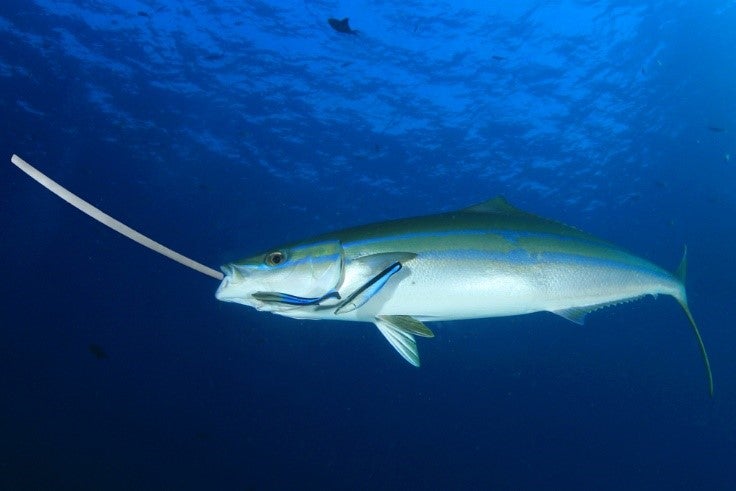 Single-use plastic items on sand. Plastic pollution is arguably a problem of “too much convenience”.
Single-use plastic items on sand. Plastic pollution is arguably a problem of “too much convenience”.
How are marine debris and our pollution problems related to the single word of “convenience”? Here in East Asia and elsewhere in the world, people go to the convenience store, where nearly every single product is wrapped in several layers of (mostly single-use) plastic. This is then at check-out conveniently placed into more plastic bags only to be unwrapped and thrown into the bin even before we leave the store. Where is our need for so much convenience in our everyday life leading the planet and its environment?
Globally, one million plastic bottles are produced per minute; ten million plastic bags are used per minute; a plastic stirrer is used for an average of about 10 seconds before being thrown away... Do we really need this much convenience to feed our fast-paced, over-consumptive lifestyles?
Indeed, the word "convenience" in the single-use plastics context, needs urgent redefinition, especially in the East Asia region where several countries top the list in terms of plastics leaking into marine systems.
On October 29-30, over 80 participants, including representatives from the ten ASEAN member states, met at a regional workshop, Supporting Marine Debris Reduction in ASEAN Member States, organized by Thailand’s Ministry of Natural Resources and Environment, and supported by the World Bank (through the PROBLUE Program) and Japan (through the Japan-ASEAN Integration Fund). In my debut visit to East Asia as a Young Professional, I was thrown head-first into the marine plastics agenda - the challenges, the complexities, and the solutions.
Participating in this interactive workshop, I saw first-hand that while the member states have different socio-economic and different waste contexts, they shared a common motivation – to move towards concrete actions to slow and reverse the addiction to plastics. To work individually, as well as collectively, to stop feeding the plastic pollution problem that impacts our ecosystems, our livelihoods, and our food chain.
This workshop – the first in a series to help ASEAN develop a Regional Action Plan for Marine Plastics – focused on policy instruments to reduce and eventually prevent plastic pollution. Many countries are developing road maps, considering policies to influence consumer and producer behavior, and identifying common standards, methods, and practices to reign in the plastics pollution. The momentum in the room was palpable… and while this was motivating, I wondered … how did we come to this in first place?
The story inspired me to think about my own plastic footprint. Earlier the same day, I got a cold splash of reality in the hotel restaurant when I asked for filtered water (knowingly championing the reduced plastics usage), but instead an opened plastic water bottle came to my table. My reluctance in double-checking with the waitress, or in complaining to her is just one example about how we - consciously or unconsciously - create (or at least are complicit in) this collective problem, since our society is so addicted to plastic, and as individuals we stopped thinking about the consequences.
Climate change was famously branded as “an inconvenient truth” … therefore, is the emerging concern on plastics a problem of “too much convenience?” Let’s take one step back, and consider, whether we need this much single-use convenience, knowing the consequences of indiscriminately discarded plastics bags, bottles, cap seals, straws, diapers…
We now hear from political leaders, NGOs, environmental and humanitarian activists, that the time for action is now. Some research tells us we could already be eating the equivalent of a credit card a week, through the microplastics in our food. At this workshop, the delegates made an important point of going to the source that preventing the pollution altogether by altering consumer preferences is key.

But… in the midst of this urgency, why wait as consumers until the global, regional, or corporate action plans on plastics pollution to be put in place? It's time for all of us to admit the inconvenience we collectively create, and sacrifice from the illusion of convenience that plastic abuse brings. Once admitted, it is not hard to act more consciously and say no to the single-use plastics, most of which we don't need anyway in the first place.
So, I am challenging you to ask the very same question — that the East Asia and Pacific countries are seeking for an answer – to yourselves: what is YOUR action plan for help to address plastics pollution?
Learn more about what the World Bank is doing to tackle this issue in the region: http://bit.ly/32bjsy2


Join the Conversation